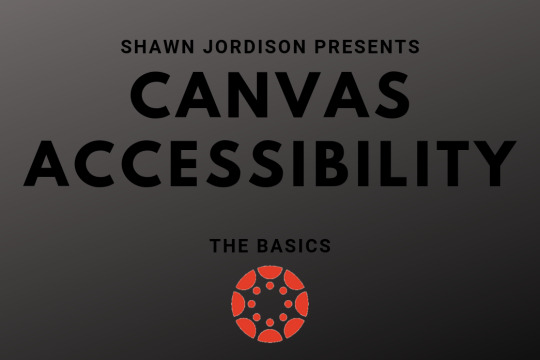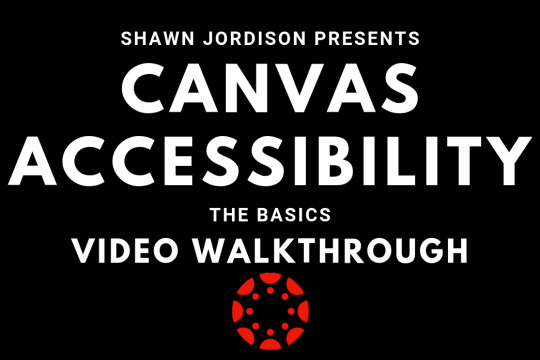#teachingguide
Explore tagged Tumblr posts
Text
Unlock Your Future: 112 Online Platforms for English Teachers
Unlock Your Future: 112 Online Platforms for English Teachers Download our free guide highlighting 112 top-paying online teaching platforms. Learn about flexible schedules, qualification requirements, and ways to increase your income. Don’t miss out on this unique opportunity to boost your teaching career! Get your guide today! #OnlineTeaching #TEFL #TESOL #EnglishTeachers #TeachingOpportunities #FreelanceTeaching #EducationCareer #IncomeGrowth #TeachingGuide #LearnEnglish
0 notes
Text
Canvas Accessibility - The Basics

Read the full article
1 note
·
View note
Link
#learnwithedulyte#onlinlearning#onlineclasses#dailyclasses#theclassoftheday#teachingguide#onlieteaching#onlineteach#onlineteachier#studyonlineteaching
0 notes
Video
View the latest Rhyming Multisensory Story Catalogue on YouTube
0 notes
Link
This resource was found after this book, One Crazy Summer by Rita Williams-Garcia was cited listed on the Zinn Project website. The novel’s protagonist is the oldest sister of three girls, and documents their summer living with their mother in Oakland with their mother, sent there by their grandmother, who is the girls’ primary caretaker in Brooklyn. During this time, the girls attend the Black Panther-run summer program, benefit from their free breakfast program, and learn about their ideology. The activities listed in this guide, produced by the publisher and found after learning the title of the novel, are twofold: a discussion component and written activities.
To use this resource, I would modify the discussion questions, which are geared towards middle school, to expand beyond literary elements such as tracking symbols throughout the text and interpreting metaphors to discussing the different characters’ experiences with the programs the Panthers are running: how does their position and that level of power affect their perception of the Panthers and the goals? Are children capable of understanding political nuances, and what political influences are children exposed to in general?
A modification of the journalism assignment could be writing an op-ed about the benefit of the Panthers’ programs to a local newspaper, or a more in-depth reporting style article detailing the programs the political group ran and the benefit to the communities they served. In addition to teaching a historical lesson about community-focused political groups promoting black power, by examining the positionality of characters and groups in the novel in terms of how they were perceived due to race, class, and gender, students will be lead to understand the marginalization of radical racially-focused political groups.
See also: https://www.teachingbooks.net/tb.cgi?a=1&tid=17070 for more resources related to this text.
0 notes
Text
One Crazy Summer

Bibliography
Williams-Garcia, R. (2012). One crazy summer. New York: Amistad.
Plot Summary
Delphine and her younger sisters travel to California to see their mother, who fed her infant daughter, placed her in her crib and left abandoned her family forever. The girls are hoping to get to know their mother and go to Disneyland, but what they find is that their mother clearly doesn’t want them. Instead, she refuses to let them into her kitchen, where she works writing poetry and printing flyers for the Black Panthers. Cecile sends the girls to a day camp run by the controversial group.
Critical Analysis
As Delphine and her sisters learn about their mother and her unusual life in California, readers learn about Civil Rights and the Black Panthers. The Black Panthers clearly try to brainwash the children into their movement by insisting they use terms such as “black” instead of “colored” and “pigs” instead of “police.” These tactics leave Delphine and her sisters baffled since it contradicts their own experiences and lessons from their father and Big Ma, their grandmother. Readers feel for Delphine and her sisters as they deal with their mother’s lack of maternal instinct, especially considering her youngest daughter, Fern, who Cecile refuses to call by her name.
Review Excerpts
KIRKUS-Delphine is the pitch-perfect older sister, wise beyond her years, an expert at handling her siblings...while the girls are caught up in the difficulties of adults, their resilience is celebrated and energetically told with writing that snaps off the page
BOOKLIST- Regimented, responsible, strong-willed Delphine narrates in an unforgettable voice, but each of the sisters emerges as a distinct, memorable character, whose hard-won, tenuous connections with their mother build to an aching, triumphant conclusion.
HORN BOOK-The setting and time period are as vividly realized as the characters, and readers will want to know more about Delphine and her sisters after they return to Brooklyn…
SCHOOL LIBRARY JOURNAL-Emotionally challenging and beautifully written, this book immerses readers in a time and place and raises difficult questions of cultural and ethnic identity and personal responsibility. With memorable characters (all three girls have engaging, strong voices) and a powerful story, this is a book well worth reading and rereading.” — School Library Journal
Connections
https://www.commonsensemedia.org/book-reviews/one-crazy-summer offers family discussion topics
http://files.harpercollins.com/PDF/TeachingGuides/0060760885.pdf Harper Collins teaching guide for novel
http://www.ala.org/emiert/sites/ala.org.emiert/files/content/cskbookawards/corettascottking_gui.pdf Lesson Plan from Correta Scott King Award site
0 notes
Text
Teaching Guide
Prior Knowledge, Visual aids, an Open Mind.
With the emergence of new media, teachers should make use of the multimodal platform to bring poetry to life. According to Hughes (2008) “students might use new media in the reading, writing or representing of poetry by adding visual images, sound or annotation” (p. 154). Similarly, the teaching of Chinua Achebe should be brought to life in classrooms through the various modes – aural, visual, auditory.
Africa is a vibrant and lively continent, and is often portrayed in a singular way in mass media. Teachers should first gather information from students by asking them what they know of Africa, tapping into the students’ prior knowledge of the place.
Q1: What do you know about Africa?
Following that, they should then build on the students’ points, or guide them towards a more comprehensive understanding of how vast and different parts of Africa are like. Then, narrow in to Nigeria. Teachers should use visual aids to paint a portrait of the landscape from where Achebe resides. This gives the students a brief background of his life. Students can also use these visual aids to gain a sense of the issues that plague the country, or what Achebe might write about.
Q2: What kind do you think Achebe would write about?
Teaching poetry should also be “playful rather than serious” (Hughes, 2008, p. 157) so students can really live through the experience and immerse themselves in the poem instead of dissecting them and losing the passion for the words. After having a visual guide, students can also watch some of the videos on Achebe to get a sense of how he has impacted those around him. Teachers should also give students a brief summary on Achebe’s life, as introduced in the biography on this website.
Before diving in to one of his poems, students can form groups to write a short poem, as though they were in his shoes. This allows students to not just be consumers of poetry, but producers as well. This sense of ownership would also help them become more interested and invested in the poet and his works.
Q3: If you were Achebe, what would your poems look like?
Pedagogical Principles to employ.
Themes & Real World Issues: After taking a look at the themes on this website and discussing the landscape and environment of Nigeria, students are now more sensitive to the themes in the poem. Relate these issues and discuss its relevancy to issues that concern the students’ immediate realities.
Class Discussion: Keller writes that the purpose of class discussion is to “enhance that encounter through analysis, as the solitary experience is unfolded and modified through exposure to others’ responses” (Retallack, 2006, p. 31). As students begin to analyse the poem together, they learn from each other and gain new understandings and perspective to how you can read a poem. The following are options to consider when conducting class discussions for this topic.
Deconstruction: The kind of pedagogical principles to implement would depend on the lesson objectives. After a broad overview on Achebe and his works, students can begin to deconstruct the poems to exercise their literary techniques. Two examples have been posted under “Teach” in the website, although more could be analysed. Teachers should introduce various literary techniques used in the two poems such as juxtaposition, diction, and personification. These are a few of the more obvious techniques to take note of. Following which, teachers introduce other techniques such as metaphors (as Achebe uses the metaphor of a plant in Mango Seedling to represent Okigbo’s contributions to the African community), and repetition (as seen in the last stanza of Dereliction to give the effect of chanting, prayers).
Activity: Collaborative Learning 1. Each group is given one literary device to work with 2. The whole class focuses on ONE poem, and pick out what they find using their group’s device 3. The class comes together to share their findings 4. After sharing, each group then discusses what they have learnt from the other groups to come up with a short critique or analysis of the poem (in written form)
Reader-response: Teachers can also give each group one poem to analyse, and hand them flash cards with various themes on them. Groups can then be asked to match the themes to the poem at hand. These themes could include war, strife, conflict between modernity and tradition, death, heroism, nature, etc. As they recognise the themes, they have a broad overview of the poem. They can they use the literary techniques learnt to pick out evidence from the poem that support their statements or what they feel the poem is about.
--- Sources Hughes, J. (2008). The ‘screen-size’ art: Using digital media to perform poetry. English in Education, 42(2), 148-164.
Retallack, J. (2006). FFFFFalling with Poetry: The Centrifugal Classroom. In Poetry & pedagogy: The challenge of the contemporary. New York, N.Y.: Palgrave Macmillan.
2 notes
·
View notes
Text
Canvas Accessibility - Video Walkthrough - The Basics

This video walkthrough will guide you through applying headers, lists, links, alternate text, color contrast, and tables within the Canvas Learning management System. https://youtu.be/33AjAx3HH5Y Applying Basic Accessibility in Canvas - Video Walkthrough Read the full article
#Accessibility#Canvas#CanvasAccessibility#Section508#Teachingguide#Teachingincanvas#videowalkthrough
0 notes